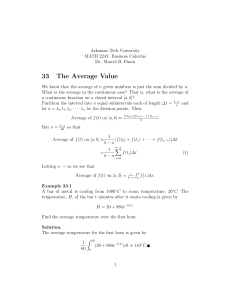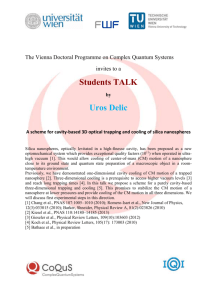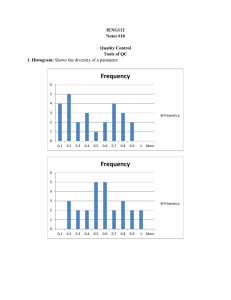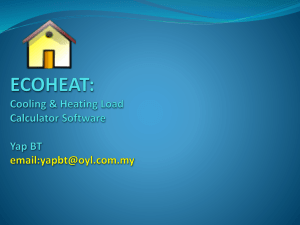Preventative Heatstroke Cooling Shelter: ASHRAE Design
advertisement
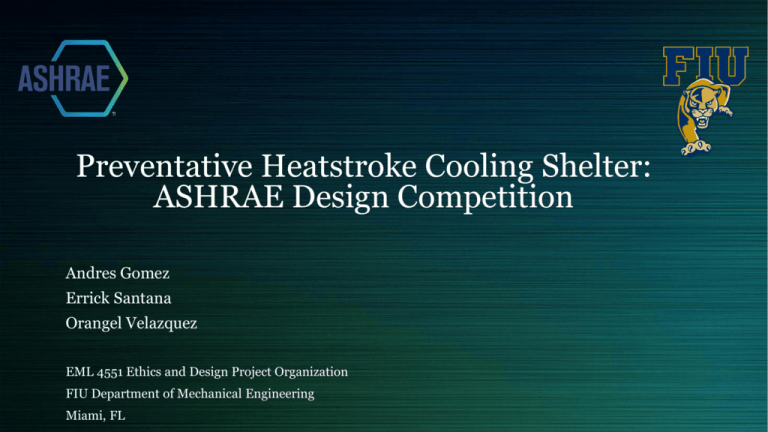
Preventative Heatstroke Cooling Shelter: ASHRAE Design Competition Andres Gomez Errick Santana Orangel Velazquez EML 4551 Ethics and Design Project Organization FIU Department of Mechanical Engineering Miami, FL Problem Statement • Heatstroke • Symptoms • Treatments • Statistics • 675 people die due to heat exhaustion yearly • Average temperature • School occurrences Preventative Measurements • Apparatuses: • Kestrel Heat Stress Meter • Cooling Vest and accessories • Cooling Centers around the country Project Objective • Build portable and reusable cooling shelter • Shelter design must have two separate modes for cooling • For dry hot climate • For humid hot climate • Achieve desired temperature in 10 minutes and maintain for an hour • All cooling must be self generated Project Objective • Cost Efficiency • Low power usage • Low cost materials • Reusable water • Environmental Impact • Water waste keep to minimum • Materials Design Alternative 1 • Advantages • Easily collapsible • Conical design creating vortex of air flow. • Lightweight • Disadvantages • Restricts airflow at top • Needs support to stand Design Alternative 2 • Advantage • Sturdy Design • Easier to setup • Portable • Obstacles • Difficult to install mist water flow system • Bulky in storage Proposed Design • Advantage • Lightweight <150lbs • Easy hanging setup • Portable • Creates vortex air flow • Obstacles • Creating solid 3-pt buckle connection • Securing mist water flow system • Diameter = 3ft • Height = 5.5 ft Global Design Integration • The shelter requires power from an outlet • Two different voltages and frequencies around the world • Device will accommodate to all global standards Global Design Integration • There are 15 different types of electrical outlet plugs around the world • The cooling shelter will accommodate to all type of power outlets Global Design Integration • Shelter composed of various components (fan, motor, mist water flow system, cooling Peltier plates) • All parts can be individually replaced • Simple end user replacement of all major components • Use of cooling equipment is immediately ready for easy use when connected Engineering Standards • The ASHRAE Handbook (American Society of Heating, Refrigerating and Air-Conditioning Engineers) • HVAC (Heating, ventilation and cooling) standards for components, and mechanism • ASHRAE 55 • Establishes requirements to be meet when creating thermal indoor environments for human use . • OSHA (Occupational Safety and Health Administration) Heat Index Guide • Provides information and standards of safe temperatures for individuals working outside. • Tables and charts to determine the likelihood of suffering a heat stroke based on outside conditions Conclusion • Three alternate designs were developed • A final proposed design was completed • All working components of the cooling shelter had been determined (Fan, Mist water flow system, Fabric, Hanging strap system ) Future Work • Flow Analysis and simulation of cooling shelter • Calculate cooling Peltier plate efficiency and reliability • Evaluate main cooling fan for optimal speed and dependability • Analysis and simulation of fabric’s reflective performance under the sun • Final build and testing of cooling shelter under various different environments
